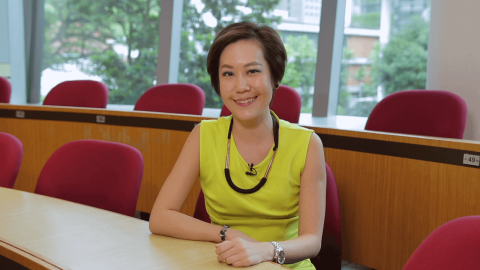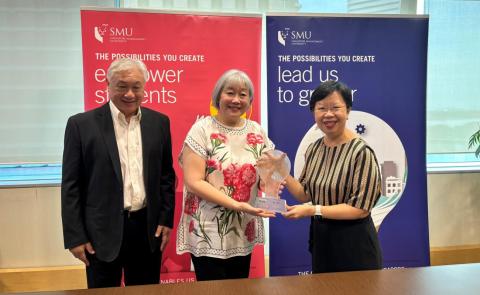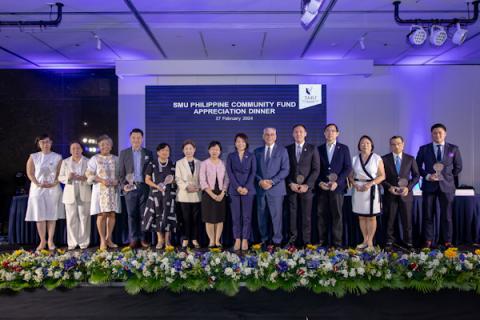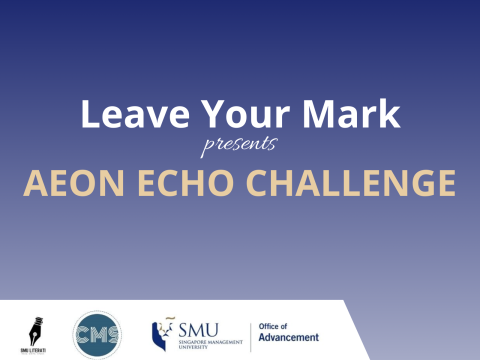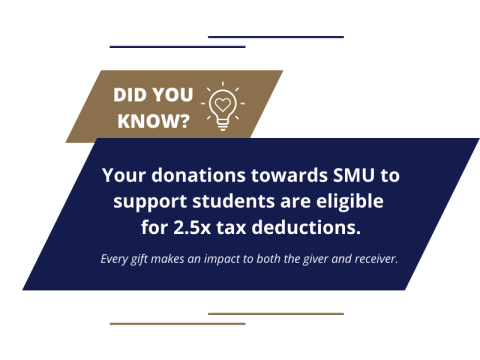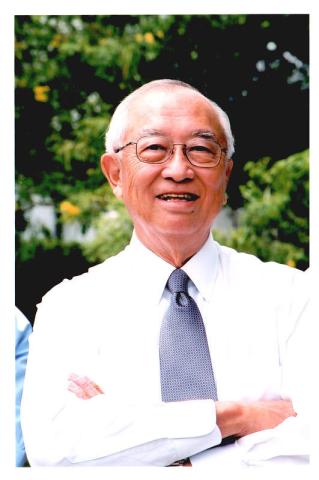Singapore's first financial literacy programme targeted at young adults
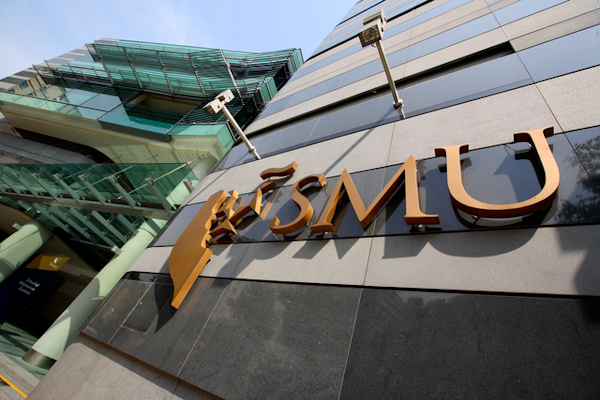
Singapore, April 9, 2012 (Monday) – Citi Singapore and Singapore Management University (SMU) have jointly launched the first structured financial literacy programme for young adults. The programme seeks to equip young adults between the ages of 17 and 30 with essential personal financial knowledge and skills to give them firm foundation in managing their money and a financial head-start early in their working lives.
To achieve this goal, participants will be taught the basics of personal finance, especially the key financial knowledge and skills applicable to their life stage. A train-the-trainer model will be used in which selected students from SMU will be trained to deliver the financial literacy outreach curriculum to the young adult community, consisting of young adults in SMU and the wider community in Singapore, with the focus on reaching the lower income segment. Young adults in SMU can also opt for an in-depth "Personal Finance" elective module taught by SMU professors.
As part of its commitment, Citi has pledged S$278,000 towards the planning and development of the programme in its first year. The programme will be rolled out in 2013. Citi guest speakers will be invited to speak at the lectures and workshops to provide an industry perspective. The programme curriculum will be developed by SMU in collaboration with industry and Citi's in-house experts to ensure a practical bent.
In Singapore , numerous studies and research have revealed that there is a need for increased financial literacy in young adults. There is a worrying trend that younger Singaporeans have a higher tendency to default on their credit card debts, an indication of low financial literacy, skills and discipline today.
On a national level, a study was earlier commissioned in 2005 titled “Quantitative Research on Financial Literacy Levels in Singapore” - a National Financial Literacy Survey report prepared for The MoneySENSE Financial Education Steering Committee. The study showed that young adults (aged 18 to 29 in the survey), housewives, the unemployed and retirees were more likely to fall into the lowest financial literacy group as compared to other segments. The overall mean financial literacy score of young adults was also the third lowest of eight identified segments with a score of 62. The unemployed scored the second lowest at 61 and the retirees at the lowest with a score of 59. This highlights the need for a financial literacy programme for young adults in Singapore.
Mr Michael Zink, Head of ASEAN and Citi Country Officer, Singapore , said, “Financial education has been a key focus of our corporate citizenship efforts since 2002. At Citi, we believe we have a responsibility towards helping people understand how to manage their financial resources as a natural extension of the work we do. There is no better investment than investing into the young lives of the next generation by empowering them with financial skills and knowledge. With strong foundations in managing their money, they can embark on their life journeys with greater confidence, opportunities and potential.”
As a leading university in Asia, SMU can contribute to this partnership by providing research capabilities. In addition, SMU will also design and customise this financial literacy programme for young adults, under its research institute—Sim Kee Boon Institute for Financial Economics (SKBI). Professors in SKBI will conduct a gap and needs analysis, curriculum development, development of training materials, training of trainers, pilot programme delivery, formation of partnerships, and crafting of an impact assessment model to gauge the effectiveness of the programme.
The initial three quarters of 2012 will focus on the development of the programme and on training the trainers. For the inaugural year, at least 20 SMU students will be trained by SMU faculty members as trainers for this programme. Together with the faculty members, these students will in turn train the wider community. In addition, students will be able to incorporate financial training to the public as part of their community service work. To-date, the response to the new training programme has been encouraging.
Professor Arnoud De Meyer, SMU President said, “SMU is delighted to participate in community related projects that allow us to contribute back to society. Our students are actively involved in meaningful social work. As part of their undergraduate curriculum, all SMU students contribute to society by engaging in community service projects. This is an integral part of the holistic education we provide here at our university, which includes internships, overseas study missions and community service work. With the new financial literacy programme, our students can also use what they have learnt, to reach out to the young adult community in Singapore, with the focus on reaching those with lower income.”
To mark the official launch of the Citi-SMU Financial Literacy Programme for young adults, a launch event was held at SMU on 9 April 2012 where prominent guest speakers from New Zealand and Singapore shared their views on how to leverage the power of partnerships to achieve financial literacy for all Singaporeans.
Professor De Meyer remarked, “SMU is well-regarded for generating research with strong relevance to the industry. SMU, through SKBI, is therefore keen to partner private and public institutions to help promote financial literacy in Singapore. Although there are already some financial literacy programmes in place for other age groups in Singapore, we are pleased to have this opportunity to partner Citi and Citi Foundation to promote financial literacy for young adults, an area that is currently lacking. This is a common vision shared between the two institutions and we see a strong synergy for both parties to join hands to help the community in need.”
Mr Zink added, “Our efforts have been focused on responding to the need in the community for Singaporeans to be able to make more informed financial decisions. For the past nine years, we have given out more than S$8.7 million in Singapore to support a wide range of financial education programmes, reaching out to all segments including students, youths, teachers, mature women and the general public. With the launch of the Citi-SMU Financial Literacy Programme for Young Adults, we have another opportunity to reach out to more Singaporeans and further the cause of creating a more financially literate society.”
About Citi
Citi, the leading global bank, has approximately 200 million customer accounts and does business in more than 160 countries and jurisdictions. Citi provides consumers, corporations, governments and institutions with a broad range of financial products and services, including consumer banking and credit, corporate and investment banking, securities brokerage, transaction services, and wealth management.
About Citi Foundation
The Citi Foundation is committed to the economic empowerment and financial inclusion of individuals and families, particularly those in need, in the communities where we work so that they can improve their standard of living. Globally, the Citi Foundation targets its strategic giving to priority focus areas: Microfinance, Enterprise Development, Youth Education and Livelihoods, and Financial Capability and Asset Building. The Citi Foundation works with its partners in Microfinance and Enterprise Development to support environmental programs and innovations.
Additional information can be found at www.citigroup.com
About SMU Sim Kee Boon Institute for Financial Economics
Established in July 2008, the Sim Kee Boon Institute for Financial Economics (SKBI) at Singapore Management University promotes the study of Financial Economics and Financial Econometrics in areas of strategic relevance to Singapore 's economy and economies of the region. A significant addition to Singapore 's efforts to be a financial hub in Asia , SKBI is a leading institute for academic research with strong industry application and practical dimension in the area of Financial Economics.
The institute has major research centres for quantitative financial analysis and offers training programmes for professionals in the financial industry. Its work is conducted in close collaboration with leading scholars in financial economics and financial econometrics from around the world as well as leading international organisations and experts from industry.
For more information, visit www.smu.edu.sg/institutes/skbife/index.asp
